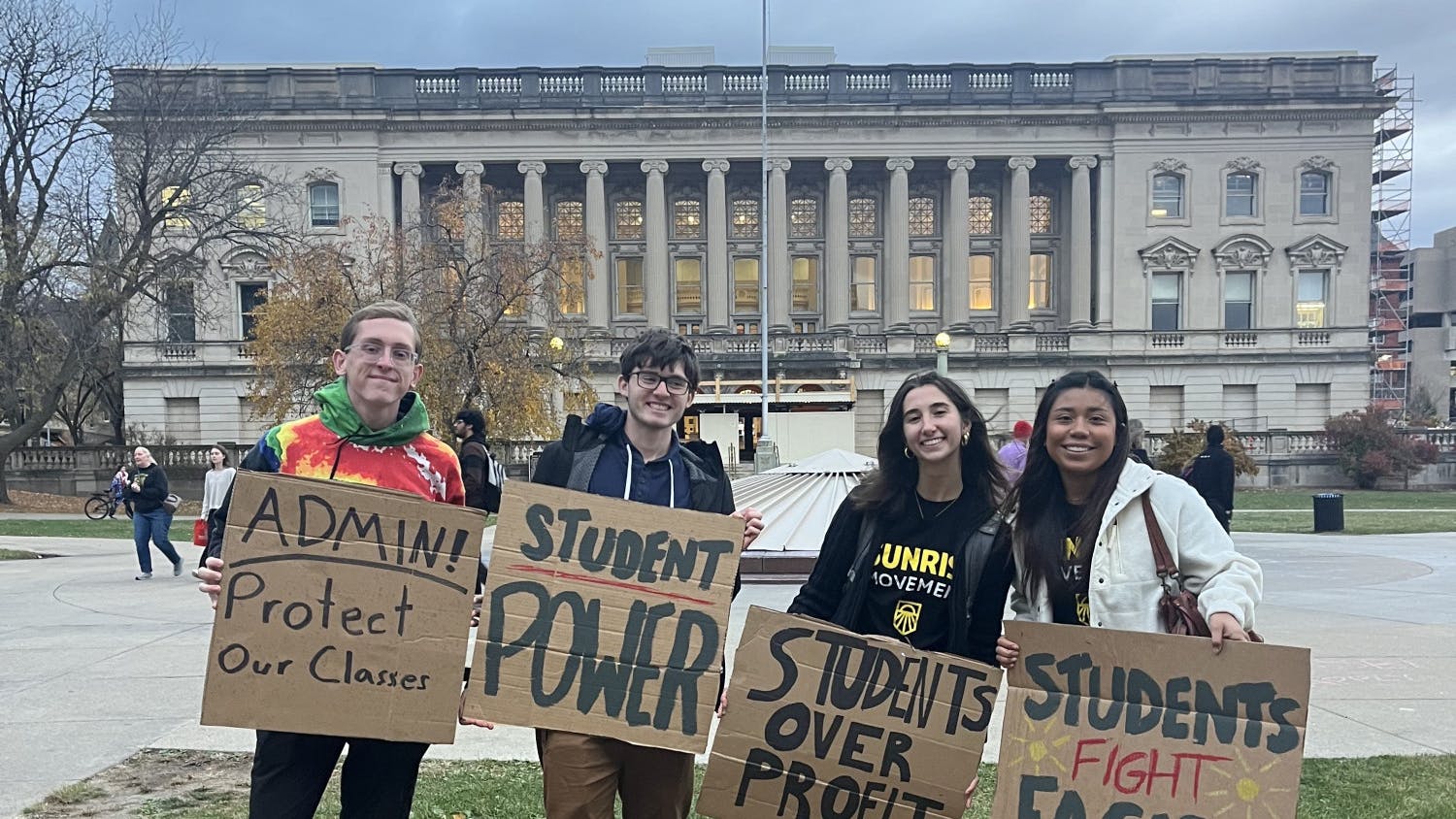The long tale of the Teaching Assistants' Association's battle for a wage increase without health care premiums is coming to a close. But the moral of this story is not a happy one for teaching assistants or their union. The product of this two-year battle and strike is a meager 8 percent wage increase and a total capitulation on health care payment.
From the proposed contract set for ratification, teaching assistants have little to celebrate. In retrospect, their strike and negotiations were almost an utter failure, and in future negotiations, the state of Wisconsin will have little incentive to work with the TAA'they need only wait for the TAA to roll over.
In April 2004, contract negotiations with the state had reached a stalemate. Teaching assistants, who had not previously been required to pay health care premiums, were for the first time being asked to pay an $11 premium to bring their union in line with the standards of other state employees. The Wisconsin legislature correctly realized they could not budge on the issue.
This paltry sum became the focal point of contract negotiations and eventually led to a two-day walkout and strike. There were stories of TAs verbally degrading students trying to attend class, and concerns among seniors as to whether they would get their grades to graduate. The semester ended quietly, with the TAs returning to work under an outdated contract.
The 'wage increase' in this new contract is, in practical terms, hardly an increase at all. The wage increase for unclassified and non-represented classified staff--state workers who do not even have a union--is, over the next three years, more than 5 percent. Compare this to the average wage increase for TAs of approximately 8 percent over an even longer period. It is pitifully ironic that TAs have to pay union dues that almost effectively offset any significant wage gains. They would make nearly as much money if they had no union at all, and without the grueling contract negotiations that have delayed their raises.
The health care sticking point is, apparently, no longer a sticking point. The proposed contract requires TAs to pay health care premiums, the very same issue TAs were so vehemently protesting 18 months ago. The obvious question is: What has resulted in such a radical change in TAA policy?
One theory is that teaching assistants were getting restless. Their union that had not produced a contract in two years, but recently proposed an increase in membership dues. Perhaps union members would have been more eager to pay dues to a union able to deliver a contract.
Another theory is that the TAA realized they had no bargaining position whatsoever. The state had not budged on their contract proposal, and the TAA strike actually turned the union's last allies'the students'against them. After a drawn-out bargaining procedure that produced more enemies than friends, there seemed to be only one option: Take the small pay increase with their tail between their legs.
Whatever the reason for the TAA's policy change, there is little for them to celebrate. This contract is the best they could get. But this editorial board hopes the union has learned from this experience and the next time their contract comes up for renewal, they will think twice about just how effective a walkout might be.





